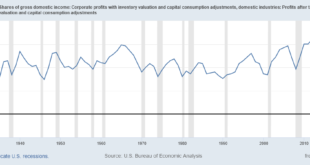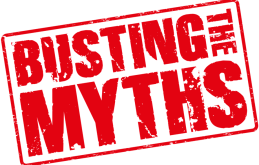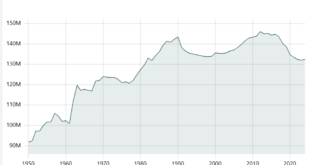from Lars Syll It is a great fault of symbolic pseudo-mathematical methods of formalising a system of economic analysis … that they expressly assume strict independence between the factors involved and lose all their cogency and authority if this hypothesis is disallowed; whereas, in ordinary discourse, where we are not blindly manipulating but know all the time what we are doing and what the words mean, we can keep “at the back of our heads” the necessary reserves and qualifications and...
Read More »´Extra Unordinarily Persistent Large Otput Gaps´ (EU-PLOGs)
A PLOG is a ´Persistent Large Output Gap´. Read: a long period of high unemployment. Literature about PLOGs tries to mitigate one of the ideas of economic orthodoxy, especially the unsubstantiated idea that lowering high post-economic crisis unemployment will fuel inflation. According to this literature, which is quite empirical, it doesn´t. However, this somewhat older literature does not yet consider the post-2009 Euro Area experience. Here, I will propose an updated definition of...
Read More »The Geology of Economics?
from Peter Radford This is something I need to get off my desktop. It’s just for fun … Asymmetry is the very beginning and end of an economy. It’s the bumps that matter. Explain them and you explain the economy. After all the very notion of exchange presumes differences between those involved, and difference is just another way off saying asymmetry. Sweep the bumps away with a broad brush of supposedly superb logic and you eliminate the very object of your study. That is if your...
Read More »Money for beginners
from Lars Syll Economists have sometimes misled us with their belief that it is their job to tell “white lies” to scare the population into “behaving themselves.” We think that is the wrong approach. This book trusts you, the reader, with that truth. We trust you to do what you can to spread the truth and to hold policymakers accountable. The truth is that government faces political constraints. It faces resource constraints. It faces technological constraints. But it does not, cannot,...
Read More »new issue of RWER
real-world economics review issue no. 109 download whole issue Culture – the elephant in the roomHardy Hanappi 22 The capitalization of everythingShimshon Bichler and Jonathan Nitzan 18 From the Bretton Woods system to global stagnationLeon Podkaminer 29 The role of internetization in creating sustainable development for the Global SouthConstantine E. Passaris 35 The works of Ha-Joon ChangJunaid B. Jahangir 56 A critique of Saito’s Slow Down; How degrowth communism...
Read More »Capitalism and Democracy: The market is far more flexible than Christopher Caldwell imagines
from Dean Baker New York Times columnist Christopher Caldwell devoted his Thanksgiving piece to describing the German sociologist Wolfgang Streeck’s views on capitalism and democracy. I have not read much of Streeck’s work, but as recounted by Caldwell, he gets many of the basic facts about the U.S. economy badly wrong. According to Caldwell’s account, capitalists were willing to sacrifice profits in the decades after World War II for stability. This meant less dynamism but allowed...
Read More »More ´Natural rate of unemployment´ busting, bad measurement edition.
The ´natural rate of unemployment´, also called ´Non-Accelerating Inflation Rate of Unemployment´ (NAIRU) or ´Non-Accelerating Wage Rate of Unemployment´ (NAWRU), is as, on this blog, Lars Syll states (here and here), a dangerous tool. According to NAIRU/NAWRU theory, a) When unemployment falls below a certain threshold, an inexorable increase in inflation will start. This is simply not true, considering the facts. b) As NAIRU/NAWRU theory is untrue, it can´t be measured by...
Read More »Busting the ‘natural rate of unemployment’ myth
from Lars Syll Sixty years ago Milton Friedman wrote an (in)famous article arguing that (1) the natural rate of unemployment was independent of monetary policy and that (2) trying to keep the unemployment rate below the natural rate would only give rise to higher and higher inflation. The hypothesis has always been controversial, and much theoretical and empirical work has questioned the real-world relevance of the idea that unemployment really is independent of monetary policy and that...
Read More »The political economy of estimating productivity.
Who decides what statistical offices measure and how they measure it? And what are the implicit values embedded in these decisions? Recently, the ILO issued a new manual on measuring productivity. Below, I´ll discuss the questions posed. But for starters, it is essential to realize that economists measure monetary productivity, not physical productivity, which leads to problems with ever-changing prices. This will be part of the discussion. The ILO (International Labour Organization)...
Read More »Peak babies has been. Young men are not expendable, anymore.
Peak Babies was in 2012. At this moment, we´re back to the level of forty years ago (and the most recent data may well be an overestimate). For the first time in centuries, cohorts entering the global labour market will soon be smaller than the cohorts preceding them. Even when there are significant differences in levels between countries, the years around 1970 were a turning point everywhere. In 1965, the relentless movement towards below-replacement human reproduction started....
Read More » Real-World Economics Review
Real-World Economics Review








